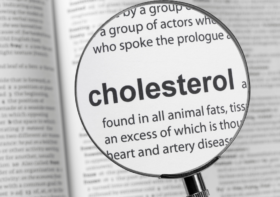Low-fat Diet Affecting Vitamin K2 Absorption Leading to Arterial Calcification

Low-fat Diet Affecting Vitamin K2 Absorption Leading to Arterial Calcification
In the pursuit of health and fitness, the prevalence of low-fat diets has become a societal norm. While reducing saturated fats has its merits, it’s crucial to recognize the potential repercussions on the absorption of essential nutrients, particularly Vitamin K2. Vitamin K2, a fat-soluble vitamin, depends on fat for absorption. In a low-fat diet scenario, individuals might inadvertently compromise the absorption of Vitamin K2, missing out on its vital contributions to bone health, especially in Vitamin K2’s role in directing calcium to bones and preventing arterial calcification. In a society leaning towards low-fat dietary preferences, there’s a need to address the potential consequences of these critical aspects of well-being.
Let’s review the basics of vitamin K2
Dietary Sources:
Vitamin K2 is predominantly found in fat-rich foods such as cheese, egg yolks, fermented foods, organ meats, and certain dairy products. Consuming these sources enhances the bioavailability of Vitamin K2, facilitating better absorption.
Absorption Pathway:
Once consumed, Vitamin K2 travels through the digestive system. It is then absorbed in the small intestine and transported through the lymphatic system to various tissues in the body. Understanding this absorption pathway highlights the importance of a well-functioning digestive system.
Gut Microbiota Influence:
Fat-Soluble Nature:
The Role of Vitamin K2
1. Bone Health:
Vitamin K2 plays a pivotal role in bone metabolism by helping regulate calcium. It ensures that calcium is directed to the bones and teeth, promoting bone density and strength. Including Vitamin K2 in your diet can contribute significantly to preventing osteoporosis and fractures.
2. Heart Health:
Research suggests a link between Vitamin K2 and cardiovascular health. It aids in preventing the accumulation of calcium in the arteries, reducing the risk of arterial calcification. This, in turn, supports a healthy cardiovascular system, lowering the chances of heart-related issues.
3. Blood Clotting:
While Vitamin K is generally associated with blood clotting, Vitamin K2 specifically influences clotting factors. It ensures a balance, preventing excessive or insufficient clotting, and promoting proper blood circulation without unnecessary risks.
4. Dental Health:
The connection between Vitamin K2 and dental health is noteworthy. It aids in the regulation of calcium, contributing to the formation and maintenance of healthy teeth. Ensuring an ample supply of this vitamin can be beneficial for both oral health and overall well-being.
5. Potential Cancer Prevention:
Emerging studies suggest that Vitamin K2 may play a role in preventing certain types of cancer. While more research is needed in this area, the early findings underline the importance of exploring the potential anticancer properties of Vitamin K2.
6. Optimal Brain Function:
Adequate Vitamin K2 levels may also contribute to optimal brain function. Its involvement in the synthesis of sphingolipids, a class of lipids important for brain health, highlights its potential role in supporting cognitive function.
In Conclusion
Incorporating Vitamin K2 into your daily diet can have far-reaching benefits for your health. Whether you’re focusing on bone strength, heart health, blood clotting, dental well-being, cancer prevention, or cognitive function, Vitamin K2 plays a crucial role.
Encouraging dietary balance is key. Embracing a low-fat diet often leads to a decrease in the consumption of these sources, potentially resulting in insufficient Vitamin K2 intake. While moderation in fat intake is wise, completely eliminating healthy fats may inadvertently lead to deficiencies, impacting the absorption of fat-soluble vitamins like K2.
Consuming Vitamin K2 alongside healthy fats enhances its absorption. Vitamin K2 is fat-soluble, meaning it dissolves in fat. To optimize absorption, it’s advisable to consume Vitamin K2-rich foods alongside healthy fats. This can enhance its solubility and absorption into the bloodstream.
As always, it’s advisable to consult with a healthcare professional before making significant changes to your dietary or supplement regimen. Prioritizing this often-overlooked vitamin can be a small yet impactful step toward a healthier, more vibrant life.







